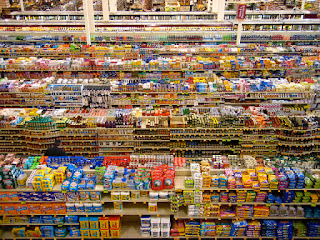25.12.13
21.12.13
12.10.13
11.10.13
28.9.13
1st October every year is World COCOA Day!
I. Questions:
- Describe the sensations you get when eating your favourite (type of) chocolate!
- Which chocolate brands do you buy most?
- Who is the best specialist chocolate-maker in your town according to you?
- Are you a chocoholic?!
- Is chocolate good for you do you think?
- Would you eat less chocolate if the price rose?
II. Read about the history of cocoa in the WCF website, and then answer these questions:
- What does "theobroma" mean?
- What did the Mayans use chocolatl for?
- What is chocolate made from?
- Did the poor also enjoy drinking chocolate in France in the 17th century?
- Who founded the first "chocolate house" in London?
- What made chocolate more affordable?
- How many tons of cocoa beans are consumed annually in the world today?
III. Read about the cocoa value chain in the WCF website and then answer these questions:
- What are the different steps in the chain?
- What words are new to you (list them and define them using the glossary on the web site)?
IV. Research the problems facing cocoa producers, then answer these questions:
- How many countries produce cocoa?
- How many people are involved in cocoa production?
- In which country are many farmers involved in cocoa production?
- Which country produces nearly 35% of the world's cocoa beans?
- In which country is child slave labour widely used in cocoa production?
V. Read the Guardian article on child labour, then answer these questions:
- What is being done by the chocolate companies to stop children being exploited?
- What are producers themselves doing to improve working conditions?
- What, according to Ms Borger, "lies at the heart of the issue"?
- What could YOU do to help solve the problem?
6.8.13
6.7.13
3.7.13
8.6.13
28.5.13
12.5.13
22.4.13
30.3.13
22.3.13
17.3.13
9.3.13
8.3.13
15th March is World Consumer Rights Day!
6.3.13
4.3.13
12.2.13
How do YOU shop?
BBC radio report (with transcript) on horsemeat scandal
The Telegraph article is
about Marisa Leaf who is fighting to preserve local shops and what they stand
for: convenience, friendliness, good advice, quality. She has set up an online
shopping and delivery service selling produce only from local shops; this is high-tech
promoting the traditional! She now has no fewer than six delivery trucks which is proof that
there is a real demand. Mrs. Leaf has in effect come up with an alternative to
supermarkets. I would definitely make use of her services!
The frenetic consumerism which most supermarkets tend to promote sometimes results in scandals such as the one mentioned in the above BBC News reports: horse meat being sold as beef. The principal aim of large food companies and hypermarket chains is apparently to make profits, even if this involves lying to customers. Contributing to a healthy society is not their concern. But how can people on low incomes feed themselves correctly nowadays when good quality food is not affordable either in local stores or supermarkets?
Blog post by Claire Plassart (OIB Terminale, MASSILLON)
Blog post by Claire Plassart (OIB Terminale, MASSILLON)
A wee dram?
Warning: alcohol of any sort is highly detrimental to children's health; children must NEVER be given alcohol, even "just to taste"!
28.1.13
6.1.13
Subscribe to:
Posts (Atom)








































